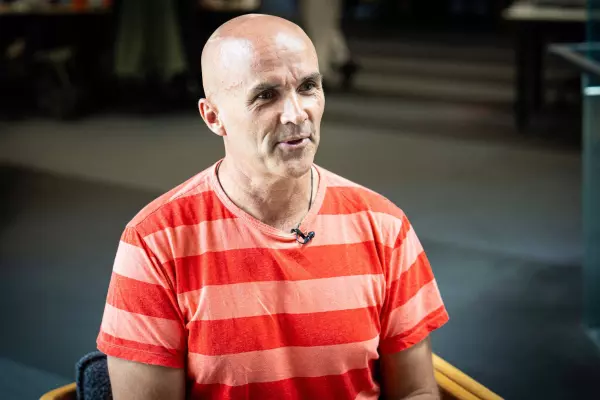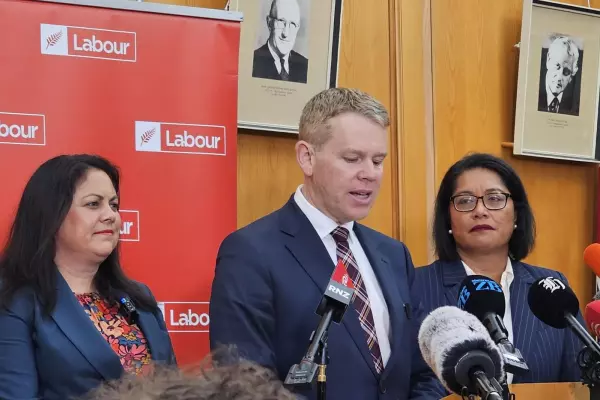BusinessDesk investments editor Frances Cook responds to emails from readers each week, answering questions about money. Below, you will find her expert advice. Send your questions to [email protected].
Hi Frances,
I was hoping you might be able to help me with some budgeting questions.
My husband and I had a baby about seven months ago. I'm about to return to work (this week) part-time (three days a week), which means it is time for us to reassess our budget.
My maternity leave payments finished in November, so we have been on a single income for a couple of months and, honestly, it's been rough. When I got pregnant, we had prepared a budget that seemed manageable, with plans on me returning to work in the new year.
We reassessed this budget six months later (just before I was due) and noticed that our expenses had gone up about $200 per week, since our initial budget, due to increased mortgage repayments, insurance and just inflation in general. Which is huge.
We knew we could still get by okay, albeit with a stricter budget. We also had a smallish emergency fund.
When we had our son, our expenses were higher than we anticipated – things like power (we had our baby in June) had skyrocketed from us being home and trying to keep the house warm for baby.
I also had a rough time post-partum, getting mastitis five times in seven weeks, and being hospitalised for this. My partner had to take additional time off of work as a result.
Fast forward to summer and we have a water leak. We live rurally and are on tank water - so this is a big problem. We have had to order in three tanks of water (about $500 a time), a new pump, new main line, plumber etc.
Basically, with increased costs of living, water issues etc, we ended up burning through our emergency fund and racking up credit card debt to survive.
My return to work, and bringing in some extra money, is a relief, but money-wise, I feel like we are starting from scratch. Starting from scratch with debt.
Do you have any tips for us with our new budget? In particular, should we focus all of our extra money (and there's not much) on paying off our credit card, or should we split it up – i.e. some for an emergency fund, some for savings and the rest for credit card?
Honestly, my mindset with money is not good. I feel like we're in a bit of a hole and it's hard to stay positive. We've struggled to stick to our budget previously and I'm worried that we will struggle with our new budget or just make our situation worse.
Thanks for your time.
L
Hi L,
First of all, I would like to give you some credit for where you are. This is one of the reasons it’s so important to save up for parental leave, which you did, and thank goodness you did. There are always unexpected costs, things that go wrong, and things that we didn’t expect.
After I had a baby, I needed a women’s health physio. No problem, I thought. I have health insurance, and physio is covered.
Oh, except that in the fine print, the physio is covered for anything except incidents related to pregnancy and birth. So I was stuck shelling out $200 a visit, and it was certainly many more than the one visit.
Thank goodness I could make the hard decision to just pay it, and focus on my health. Thank goodness I had savings to run down. It is pure sexism that I needed to make that decision.
All this to say, I think parental leave is always tough, you prepared for it as well as you could, and you’ve come out the other side relatively well. Sure, your savings are depleted, but that’s what they were there for. Debt isn’t great, but you’re making a plan to deal with it.
Now to get you back on more stable footing as fast as we can.
Priorities
Here’s a general outline of the priorities I think help most people get back on their feet.
Start with building up a $1000 emergency fund, while of course still making minimum payments on your debt. But any money you can spare gets focused on this savings fund.
We build up this small cushion first because it gives you a feeling of stability and security. If another unexpected expense crops up, you are less likely to have to slap it on the credit card, and feel like you’re going backwards.
A savings account on hand to help you through any more unexpected curveballs is a huge peace of mind. Reducing money stress is also a big win, because it helps you think more clearly, and not make decisions from a place of panic.
Now debt
Once you hit the $1000 benchmark, turn your focus to paying off the credit card debt as fast as you can.
Extra payments here mean you pay much less overall, as every extra day you have that debt costs more in fees and interest.
Two strategies can work well here: avalanche or snowball. Pick the one that most appeals to you.
Avalanche technique means you focus every extra dollar you can on paying off the highest-interest debt first. This will technically save you the most money, and get the debt paid off faster.
However, some of us quite reasonably struggle with motivation.
If that’s you, then snowball is a better bet.
You pick the smallest debt and put every extra dollar onto that that you can. This gives you a win, reminds you that you can do it, and helps you keep going.
What matters is finding a technique that works for you and your mindset.
Now more security
After that, you’ve got a bit of breathing space to build up longer-term savings so you have more financial security. Ideally, enough to cover three months of your unavoidable core costs.
Figure out an amount that you’re comfortable with on your new budget, and set up an autopayment into the savings account.
Once you’re through the scary period of paying off debt, the risk is losing motivation. But this savings account will give you so much peace of mind and stability, and I want that stress-free life for you.
It’s hard starting a family, it’s certainly hard feeling like you’re starting over, but you’re already doing well.
You’ve taken control of what you can.
You’re back at work, earning. You’re looking for information on the best strategy, instead of just haphazardly muddling through. And you’re doing all of this while probably still sleep-deprived from your lovely bub.
You’re doing great.
Now to put this strategy into place and give yourself the confidence of having a plan, and a road map.
Send questions to [email protected] if you want to be featured in the column. Emails should be about 200 words, and we won't publish your name. Unfortunately, Frances is not able to respond to every email received or offer individual financial advice.
Information in this column is general in nature and should not be taken as individual financial advice. Frances Cook and BusinessDesk are not responsible for any loss a reader may suffer.














